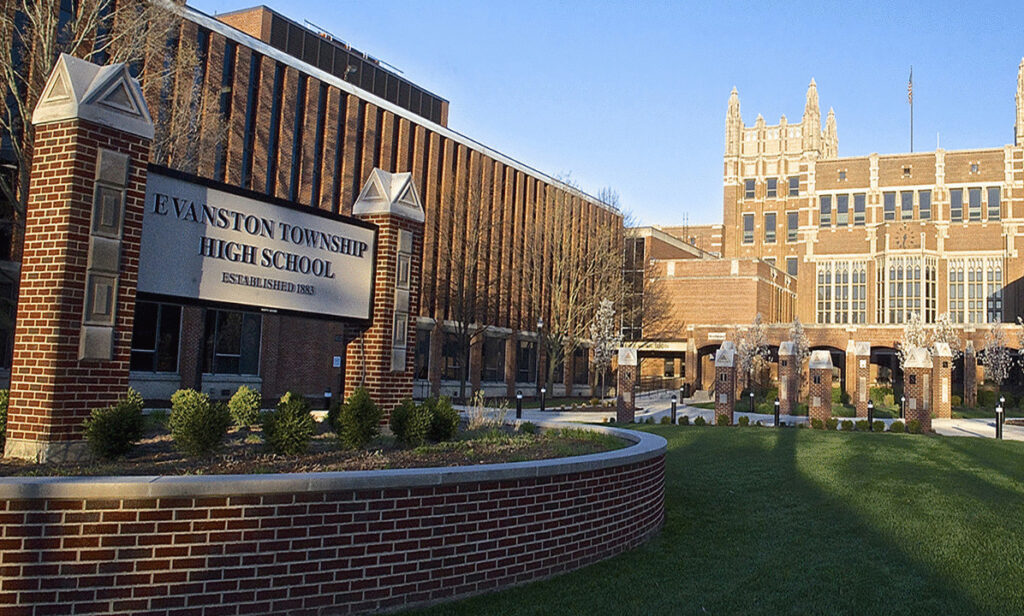Racially segregated courses in Illinois public schools illegal and unconstitutional, say civil rights attorneys
Racially segregated courses offered by a high school in Illinois are likely illegal and unconstitutional, civil rights attorneys tell the Washington Free Beacon.
As reported previously by The…

Racially segregated courses offered by a high school in Illinois are likely illegal and unconstitutional, civil rights attorneys tell the Washington Free Beacon.
As reported previously by The Lion, Evanston Township High School is offering racially restricted courses for the 2023-24 school year. In one example, the school’s course catalog details an advanced calculus course that is “restricted to students who identify as Black, all genders,” with an identical course restricted to students who “identify as Latinx, all genders.” Similar courses are reportedly offered in algebra, precalculus and English.
The goal, the school says, is to increase participation by students of color in advanced courses. Nearly 200 black and Latino students have reportedly enrolled in the segregated courses.
Senior Fellow Mark Perry of Do No Harm, a nonprofit medical watchdog group, filed a civil rights complaint against the district earlier this year, alleging the courses violate federal civil rights law.
In the district’s defense, Evanston school board Vice President Monica Parsons suggested the classes will help bridge a performance gap for the district’s minority students.
“Our black students are, for lack of a better word … at the bottom, consistently still,” she reportedly said at a recent board meeting. “And they are being outperformed consistently. It’s not good.”
Evanston Superintendent Marcus Campbell also defended the segregated courses, arguing some students of color don’t feel comfortable in classes with students from a mix of races.
The segregated courses offer “a different, more familiar setting to kids who feel really anxious about being in an AP class,” he told the Wall Street Journal.
The Journal’s article seems to make the case these segregated courses are legal because they aren’t mandatory.
“Federal antidiscrimination laws prevent public schools from mandatorily separating students by race, but education lawyers say optional courses can comply with the law,” the authors assert, citing unnamed sources.
Evanston is just the latest district to try to combat underachievement of minority students with segregated courses. Such courses are reportedly offered in Minneapolis, Seattle, San Francisco and Oakland.
Dena Luna, director of the Office of Black Student Achievement for Minneapolis Public Schools, says segregated classes allow black students to be themselves.
“A lot of times within our education system, black students are expected to conform to a white standard,” she said. “In our spaces, you don’t have to shed one ounce of yourself because everything about our space is rooted in blackness.”
Opponents of classroom segregation point to Title VI of the Civil Rights Act, which makes it illegal for anyone to be “excluded from participation in, be denied the benefits of, or be subjected to discrimination under any program or activity receiving Federal financial assistance.”
Therefore, some say not only does classroom segregation go against the fundamental purpose of the Civil Rights Act, it is likely illegal and unconstitutional.
Max Eden, education researcher for the American Enterprise Institute, believes such segregation erodes the impact of the Civil Rights Act.
“Integration is a positive social good,” he told the Journal. “We want students to be colorblind and to treat each other only on the basis of who they are as human beings.”
William Trachman, a former Education Department official, disagrees with the notion segregation is legal as long as it’s voluntary, arguing “[Title VI of the Civil Rights Act] does not distinguish between mandatory and optional activities.”
Civil rights expert at George Mason Law School, David Bernstein, agrees with Trachman, telling the Beacon segregated classrooms are “blatantly unconstitutional.” What’s more, he says “there is no way that could possibly pass legal muster if someone sued.”



